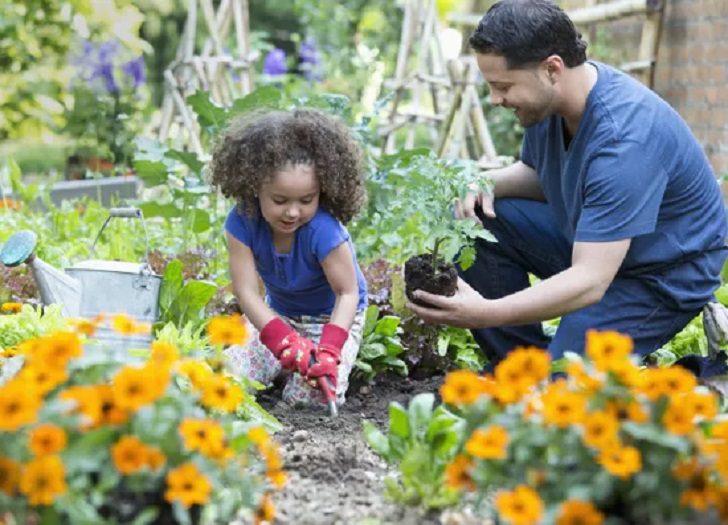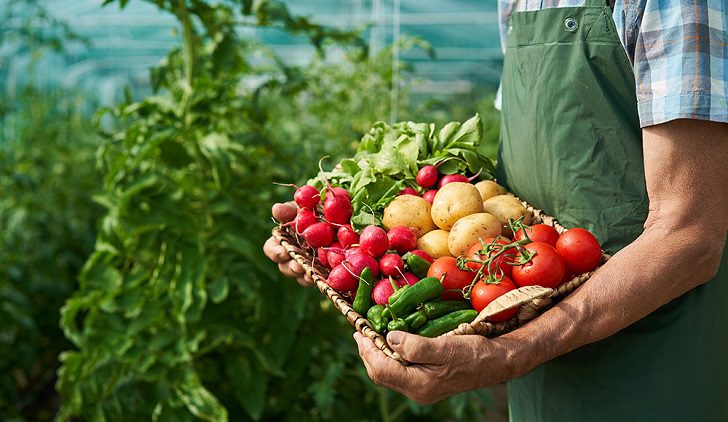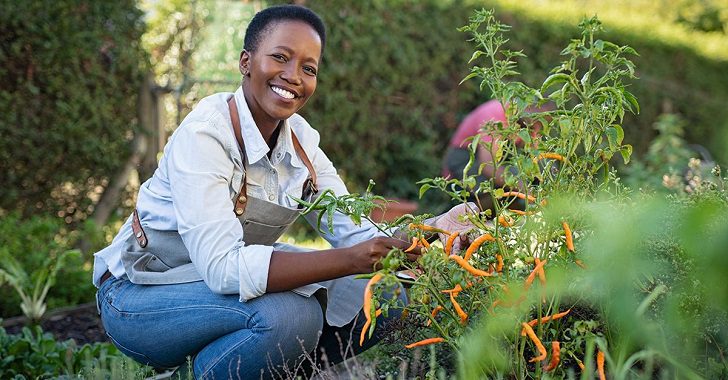Creating and maintaining your own garden is quite simple. All you need are some seeds and plastic containers or small repurposing containers as a starting point. You can also plant your seeds in a biodegradable pot that you can easily grow anytime and anywhere, even at your home and office desk! Seed starters are a great way to kick start your biodegradable garden over the spring.
A repurposed container can be easily recycled into plant holders and for decoration purposes supporting environmental sustainability and healthier living. You can also use organic compost such as vegetable scraps, garden clippings, and fruit leftovers such as banana leaves, which contain high carbohydrate levels that act as a natural decomposer when added to the manure and compost. Organic compost reduces the amount of debris that goes to landfills and later contributes to polluting the environment.

Ariel Skelley/ Getty Images | “Let us not forget that the cultivation of the earth is the most important labor of man
Benefits of organic farming
Many farmers are now switching to organic farming just like organic gardening and maintain a strong commitment to regulating healthy and environmentally friendly soil without abusing the land or the plate. Organic lands not only provide during the present times but also for their families and the new generations to come. Such gardening also helps to prevent loss of topsoil, water pollution, salinity, soil contamination, toxic runoff, soil poisoning, and death of numerous insects, birds, critters, and other living things that are dangerous to the soil.

Gilmor/ Getty Images | An organic farmer is the best peacemaker today
This also eliminated the risks of pesticides, herbicides, and fungicides that ruin the soil and the fruits or crops. The fruits and vegetables that are plucked from the trees, vines or bushes are fresh and more nutritious than those products that contain chemicals to stimulate their growth and improve the ripping and taste of the food substances.
Since organic farming eliminates the risks of chemicals and pesticides, the consumer receives a health boost by intaking less concentration of magnesium and nitrates. Additionally, it has been proven through many research results that organically produced food products produce and deliver more antioxidants that reduce the risks of cancer cells.

Green Matters/ iStock | The Earth is what we all have in common
When you switch to growing an organic garden, you’ll find that you’re spending less on gardening supplies than before since you won’t have to buy expensive chemical fertilizers. Instead, you can use yard clipping to replenish nutrients and reproduce beneficial organisms in the soil. You can also make your own herbicide and pesticide spray using products directly from your pantry.
Other than this, organic gardening also reduces the consumption of natural resources such as water. Since the solid already happens to be rich in organic compounds and nutrition hence holds more moisture than non-organic manure. The soil is also less vulnerable to wild plants, such as weeds, that choke up the water concentration and reduce the rate of evaporation hence gardeners only have to spray water once a day to keep their plants fresh.










